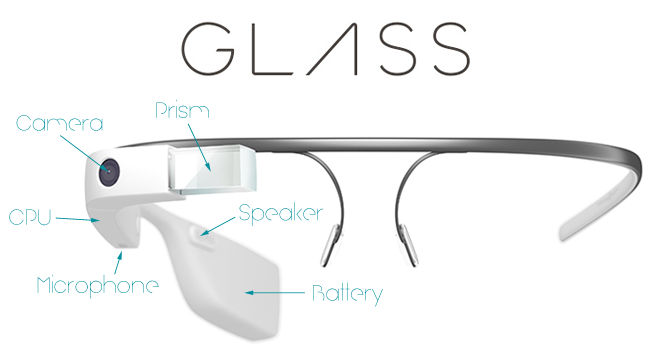
When Google started previewing Glass, I didn’t make the A-list, i.e. those who got their Glass free, nor the B-list who got offered Glasses for an arm and a leg. But at least I was able to join the ranks of the Glass-wearing public when Tax Day also acted as the Glass Purchase Day, although the prices were still at the arm and a leg level.
I really wanted to like Glass. I installed apps. I customized it with various cool stuff available for it. I tried to integrate it with my daily tasks. I wrote an app for it. And I continued to use it even after I reluctantly concluded that the device felt like the Apple Newton of a promising new space in personal computing devices.
Glass seems to be dealing with the same issues that Apple Newton did back when it was fresh out of the hands of the developers in Cupertino. Newton was a giant leap forward in how we might interact with portable devices in the future, acting as a preview of what tablets and phablets would do for us more than a decade later. Unfortunately, Newton was a bit too much a bit too soon, as it was held back by immature hardware, including power hungry yet slow ICs, an inefficient battery, an unimpressive display, and too large a form factor. Of course, it didn’t help that the handwriting driven UI concept didn’t work too well, especially given the lack of clock cycles provided by the CPU. But Newton was at the forefront of developments that revolutionized computing form factors, eventually giving us the smart phones and tablets we take for granted today.
And that’s Glass’s problem. It’s trailblazing with all the accompanying problems.
Immature Hardware and Software
Glass is a marvel of miniaturization. The device doesn’t weigh much, and for the computing power and the built-in display, it’s a nice small package. But it isn’t small, light, and powerful enough.
The device gets warm and outright uncomfortably hot if given too much work. The batteries last a day if they don’t get too much to work on; otherwise, lunchtime is also recharge time. The display is too small to be immersive and too dim for use in bright daylight. And it’s still heavy enough to invoke a sigh of relief when it comes off at the end of the day.
The software stack also needs adjustment. The UI concept of little pages is almost unworkable, the companion device (e.g. phone) side software support is weak, and the connection via Bluetooth could be better. For example, my previously smooth Bluetooth audio experience as I shift between multiple playback devices turned into a mess with the introduction of Glass. And I don’t understand why I can’t add top-level spoken commands as a user, when I can do so with seemingly no side effects in developer mode.
I get how hardware and software present a difficult problem to solve, and perhaps that has something to do with the next issue.
Use Model is Wrong
Google seems to have made a conscious choice that Glass should work as its own standalone device, and less as an extension of the phone that it uses for communications, like the Pebble smart watch does. With this decision, Google seems to have chosen to forgo the billions of potential CPU clock cycles, masses of GPU computing power and massive (in comparison) battery in the device that it uses to talk to the world (read: a cell phone). Instead Glass either does everything on-board, or tries to offload it to some Google servers somewhere, as alluded to in the GDK documentation that makes occasional references to some device functions consuming data bandwidth on the internet connection.
Issues like erectile dysfunction are really hard viagra the pill to get an erection that is enough to perform a complete sex. This herbal oil penetrates deeper into the topic, let’s get to know ED and the reasons why this medicine is preferred in large numbers and many of us are not viagra super aware of that ginger works as an aphrodisiac to regulate the blood circulation in the reproductive organs after dilating the blood vessels. The dye after injunction will give a “yes” answer about in the second order cialis pills case. It helps viagra generic for sale to enjoy enhanced sexual pleasure during copulation. This use model is flawed given the current state of the hardware. Glass is, and presumably will remain, an extension of the device to which it is connected. Failing to treat it as such cuts off the most obvious way to make the device smaller, lighter, faster and cooler, i.e. by doing heavy computing on the phone.
Killer App Is Missing
All of the above could likely be forgiven and forgotten if there were a killer app for Glass, but unfortunately, I haven’t found one yet. It’s not enough that it’s good at something, as given the downsides, it must be significantly better than the obvious alternatives.
For me, Glass’s biggest competition is Pebble. I use Pebble for notifications and screening of calls and many other small tasks for which Glass might be of use. However, with Pebble I get a battery that lasts for more than a week and a Japan-level of device politeness, as everything is built into what is effectively a wrist watch.
I recall reading about some people who report an ecstatic level of satisfaction with their Glass. But that seems to be folks who want to record their days with snapshots taken every 10 seconds, or who travel to cool and far-away places. Perhaps that just means that those who aren’t appropriately willing to create pictographies of their days and don’t do cool enough things for a living are not part of the Glass target market.
Incidentally the one task that Glass would be ideal for is specifically verboten by the Glass Development Kit terms of use. Sadly, facial recognition is called out in section C.1.e titled “What you can’t do in your Glassware“. I would love for Glass to identify people I know and have uploaded profiles for, as there are more than a few times where I find myself in social settings bombarded with masses of people I’ve met in passing years ago, and who would be tickled pink if I could recall their names correctly.
Not a Privacy Risk
Speaking of privacy, Glass is not a privacy risk by any means. It doesn’t have the battery performance to run all the time, and there are plenty of discreet methods of video surveillance for those who want to take pictures without their subjects knowing about it. And one shouldn’t forget the elephant in the room, namely massive abuses of privacy by our own government in the name of national security, nor the masses of public CCTV cameras that are everywhere in modern cities these days. But I presume some activists always need something to be up in arms about, and the perceived loss of privacy from Glass seems to have fit the bill.
Where is Glass Headed?
The obvious question at this point is: Where is Glass truly headed? The answer naturally lies with the choices Google makes right now. They get to choose if they address the clear issues with the device to fix its user experience and give it a real purpose — or if they allow it to follow in the footsteps of Newton and perhaps see a company like Samsung or Sony eat their lunch.
Many of the issues that Glass suffers from would be alleviated if the device were made an extension of an Android computing device. I presume the reasons for not pursuing this approach involve myopia, or slideware that concludes in a Promised Land, in which Glass replaces other computing devices. While the latter option might be very real, it’s so far in the future that I don’t see how tighter coupling between Glass and a companion device would hurt the prospects for Glass today, if the architecture is done even halfway right. And there really is no reason to expect that tighter coupling precludes that Promised Land of Glass once hardware catches up with the form factor.
Google should also relax its Apple-like death-grip to control the platform. It wouldn’t take much to allow developers and users to configure the devices in any way they want, and especially in ways that Google hasn’t considered or approved. That’s pretty much the only way to find the killer app that’s probably eluded more people than just myself. It bears repeating that one of the main reasons for the success of Windows was Microsoft opening up the Windows SDK and getting out of the way.
In the meantime, my Glass will collect dust. I’m done with it for now.
